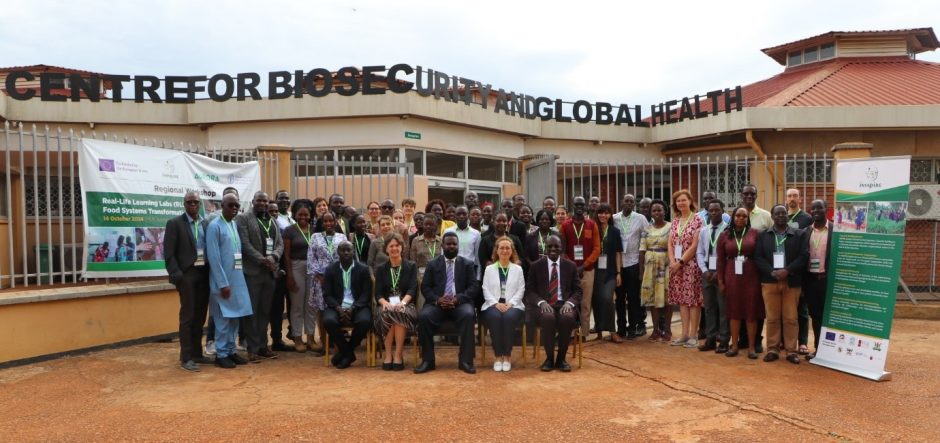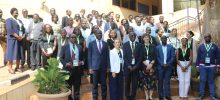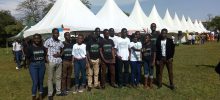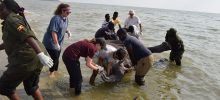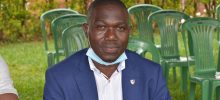Makerere University Hosts INSSPIRE Project Workshop on Enhancing Evidence-Based Education on Food Systems and Climate Change
Kampala, Uganda – October 14, 2024 – Makerere University’s College of Veterinary Medicine, Animal Resources and Biosecurity (COVAB) is hosting a five-day Training of Trainers workshop for the Collaborative Online International Learning (COIL) model. This is part of the Innovation for Sustainability and Societal relevance (INSSPIRE) project, which focuses on enhancing evidence-based education in food systems and climate change.
The workshop that brought together partners and stakeholders from various higher education institutions across Southern and Northern Africa to brainstorm innovative strategies for addressing these pressing global challenges.
During the opening session held at the Centre for Biosecurity and Global Health (CEBIGH) at CoVAB, stakeholders demonstrated their progress in implementing Real Life Learning Labs (RLLL), an experiential learning approach designed to foster interdisciplinary collaboration on real-world development projects. These labs aim to tackle relevant issues in agriculture, industry, and society by equipping students with practical skills and problem-solving capabilities.
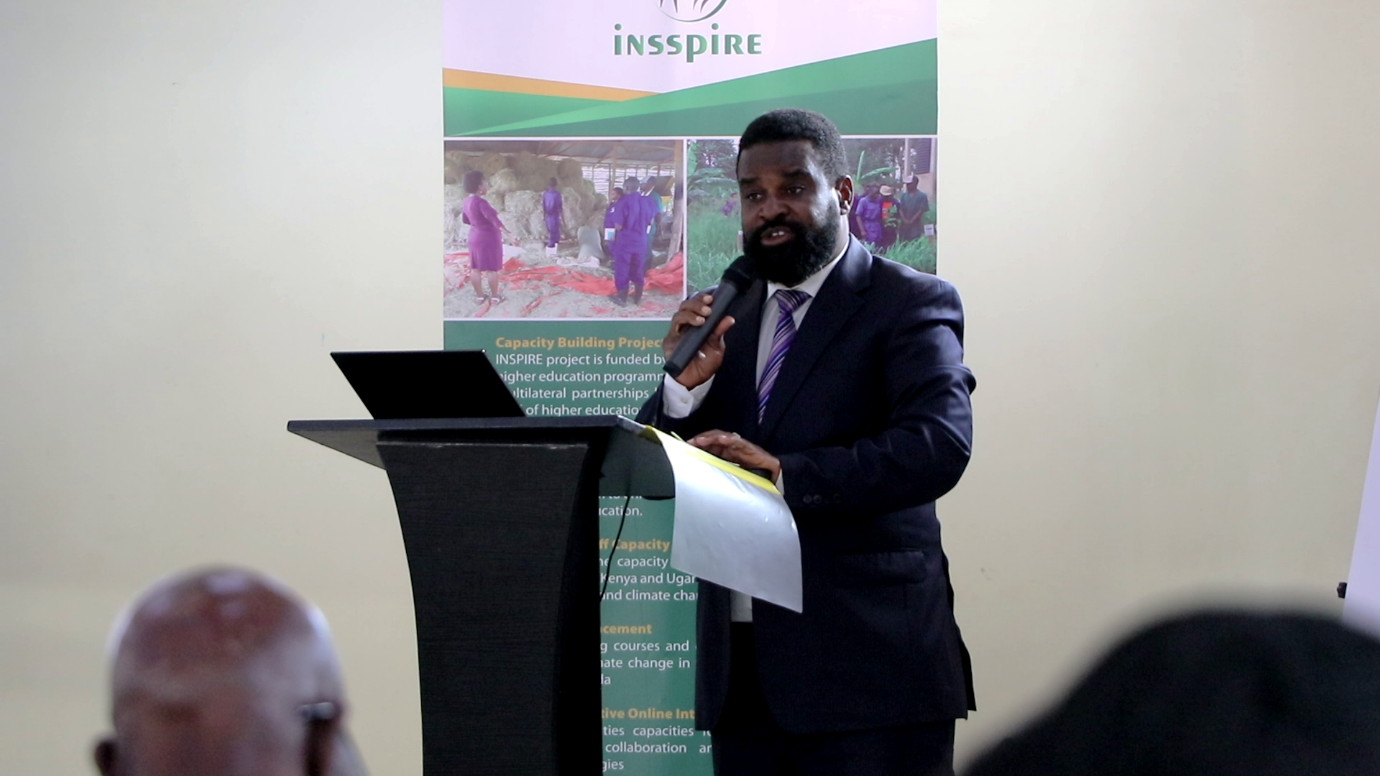
Assoc. Prof. Robert Wamala, Makerere University’s Director of Research and Graduate Training represented the Vice Chancellor Prof. Barnabas Nawangwe at the opening ceremony .
Associate Professor Robert Wamala, Makerere University’s Director of Research and Graduate Training delivered a keynote address on behalf of Vice Chancellor Makerere University Prof. Barnabas Nawangwe. He emphasized the severe impact of climate change on global food systems, particularly in vulnerable regions. “Climate change disrupts food systems globally, aggravating food security by impacting agricultural production through extreme weather events and shifting rainy seasons,” he stated. Prof. Wamala highlighted the need for transformative solutions that address the intertwined issues of food security and environmental degradation, which was on the areas to be addressed through the intervention.
The INSSPIRE project aims to stimulate innovative education and build inter-university capacity through international partnerships. By focusing on capacity building in higher education, the initiative supports staff development at participating universities in Kenya and Uganda thereby enhancing the delivery of educational modules on food systems and climate change.
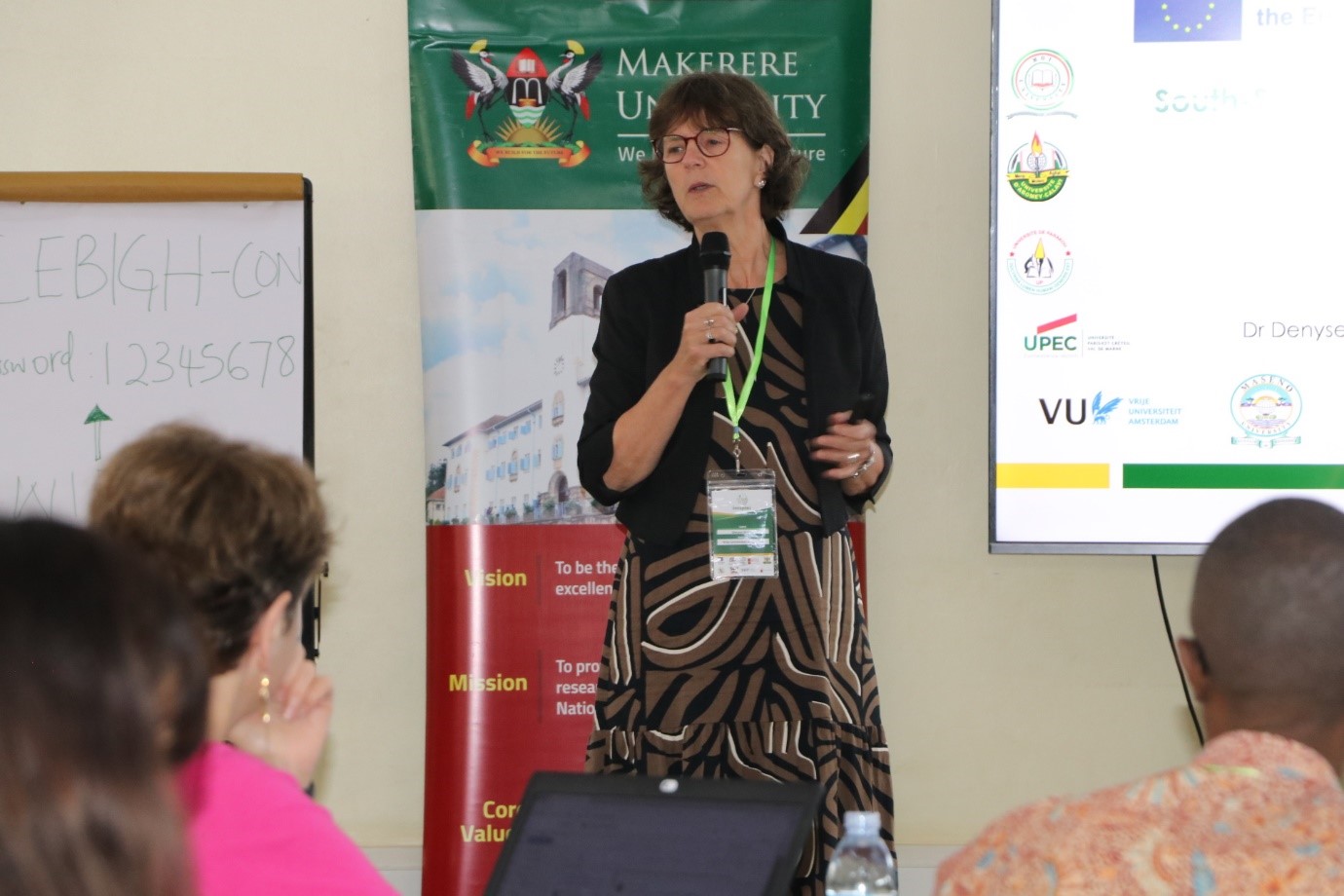
Dr. Denyse Snelder, a senior advisor in Food and Nutrition Security and Sustainable Land & Water Management at the Centre for International Cooperation- Vrije Universiteit Amsterdam (CIS-VU) makes a presentation during the workshop
Dr. Kato Charles Drago from CoVAB who is the team lead for the INSSPIRE project at Makerere University, coordinated the workshop, which attracted participation from institutions such as South Eastern Kenya University, the Institute for Innovation & Development of the University of Ljubljana, Mbarara University of Science and Technology, Maseno University, the University for Development Studies (UDS) in Tamale, Ghana, and the University of Energy and Natural Resources (UENR) in Sunyani, Ghana.
Prof. Frank Norbert Mwiine, the Principal of COVAB, in his address to the participants noted that Uganda’s economy largely depends on agriculture and the sector supports several families and employs a big part of the population both formally and informally including graduates from Makerere University across several disciplines. He said food systems in the country were rapidly evolving as a result of population demands amidst the increasing challenge of climate change. ‘We are glad that the INSSPIRE project plans to address this gap by strengthening food systems and adapting them to the challenges of climate change, he said.

Prof. Frank Norbert Mwiine, the Principal of COVAB made his remarks and promised total support to the project.
Prof. Mwiine appreciated the support that CoVAB will receive from the project in enriching curricula for two courses under the Bachelor of Animal Production Technology (BAP) by building the capacity of staff to deliver modules on food systems, which he said, would make the graduates competitive in the ever-changing job market. The training of staff in curriculum enrichment and new course delivery approaches like the Collaborative Online International Learning (COIL), and gamification will help improve teaching and aid student’s interest and understanding of agriculture-based courses. He observed. While addressing himself on the real life-learning labs pioneered by the INSSPIRE project, he said the model will facilitate students to acquire practical skills and hence enhance their relevance in the community as the students and staff support communities to identify real-life challenges and tackle them holistically. He reaffirmed the commitment of the college leadership in moving these innovations forward, as demonstrated and that the college was ready to engage further in resource mobilization drives to drive the innovations forward.

Some of the participants in the workshop have a look at one of the posters spelling out activities of Real-Life Learning Labs
As the workshop unfolds over the coming days, participants will deliberate on innovative strategies to transform food systems and advance climate change education, underscoring the critical importance of multidisciplinary approaches in fostering sustainable development.

Sabina di Prima (right), a Sustainable Food Systems specialist and Manager of International Cooperation Projects at the Centre for International Cooperation- Vrije Universiteit Amsterdam (CIS-VU) leads a group of participants during an experiential demo
Written by Jacinta Nakaye


